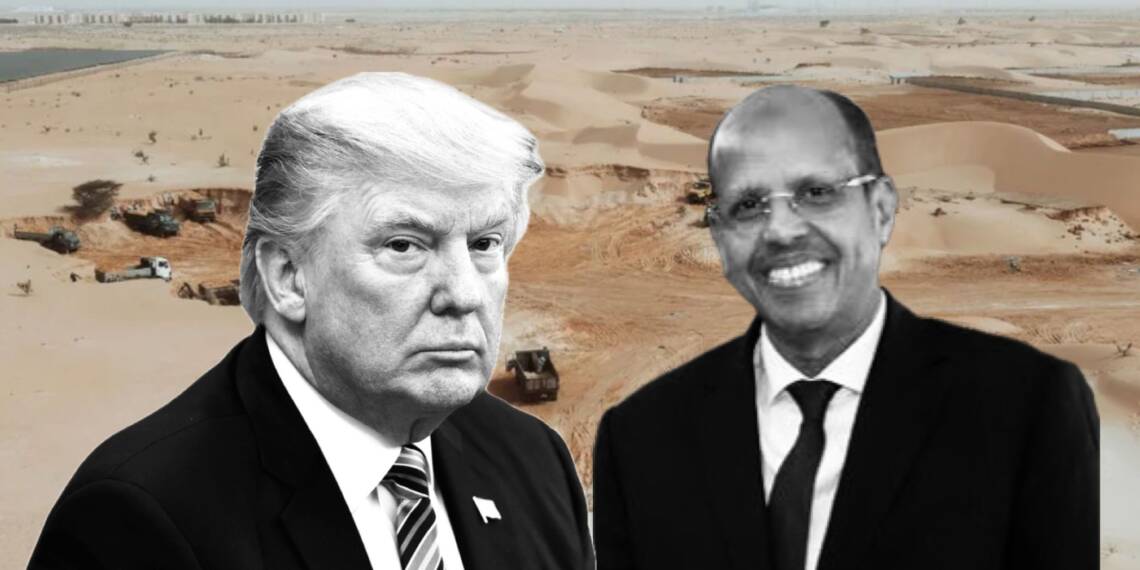In July 2025, U.S. President Donald Trump hosted a notably selective “African leaders” summit at the White House, gathering just five African nations—Gabon, Guinea-Bissau, Liberia, Mauritania, and Senegal—out of the continent’s more than 50 countries.
This summit, centered on commercial opportunities, reflects a sharp and strategic pivot in American Africa policy toward transactional, business-focused diplomacy aimed at countering growing Chinese and Russian influence in the region.
A Strategic Business Lunch with Select African Leaders
The July 9, 2025, working lunch in the State Dining Room of the White House was designed to emphasize shared economic goals and deepen diplomatic ties through commerce. The White House framed the meeting as an effort to tap into Africa’s vast commercial potential, which benefits both U.S. and African partners. President Trump met with the leaders of the five countries, who collectively praised him and encouraged increased U.S. investment in their resource-rich nations.
Trump, expressing surprise at the warm reception, commented, “I didn’t know I’d be treated this nicely. This is great. We could do this all day long.” The host nations are rich in minerals, including oil, gas, gold, iron ore, and rare earth elements, placing them strategically in the battle for access to Africa’s critical resources.
Notable Exclusions: Africa’s Major Powers Remain Absent
Absent from the summit were Africa’s largest and most influential economies—South Africa, Nigeria, Egypt, and Ethiopia. These nations are either members or aspirants of the BRICS group, which includes major U.S. rivals like China and Russia. Trump’s administration has imposed reciprocal tariffs on some of these countries for supporting what it views as “anti-American” policies. This exclusion underlines a deliberate U.S. strategy focusing on smaller nations perceived as more receptive to American business interests and less aligned with geopolitical adversaries.
The New U.S. Diplomatic Model: Transactional and Commercial
Experts such as Christopher Afoke Isike, professor of African politics at the University of Pretoria, characterize the gathering as “low-hanging fruit” for Trump—easy wins in his broader goal of displacing Chinese and Russian influence. This transactional approach prioritizes trade and investment deals over traditional aid, signaling an end to longstanding U.S. development assistance programs like USAID, which the Trump administration has largely dismantled.
U.S. Secretary of State Marco Rubio endorsed this vision by asserting that future U.S. aid and investment must advance an “America First” policy focused on partners willing to help themselves economically. The administration aims to shift African engagement from charity toward strategic commerce-driven partnerships, with ambassadors evaluated on commercial deal-making rather than diplomatic norms.
Strategic and Security Dimensions
Beyond commerce, Trump urged the invited leaders to enhance defense spending and purchase U.S. military equipment, seeking to strengthen U.S. security ties and counterbalance Russia’s expanding military footprint in Africa. Migration issues also featured in discussions, with Trump stressing the need for countries to accept the return of nationals residing unlawfully in the U.S. The Gulf of Guinea region, highlighted by Gabon’s president for its piracy challenges, represents a security concern where U.S. cooperation is pitched as crucial.
Contrasts with Previous U.S. Administrations
This selective summit contrasts with broader, more inclusive U.S.-Africa engagements under former Presidents Barack Obama and Joe Biden, who hosted larger fora involving many African countries. For example, Obama’s 2014 U.S.-Africa Leaders Summit included leading African economies such as Nigeria, Ethiopia, and South Africa. In Trump’s first term, despite some criticism of a dismissive stance toward Africa, a working lunch with nine African heads of state (including Nigeria and South Africa) was held, emphasizing Africa’s business potential more broadly.
Africa’s View: A Mixed Reception
From Africa’s perspective, the summits and policies are viewed through pragmatic lenses. The five chosen nations see opportunities to leverage U.S. investments to develop their abundant natural resources under “win-win” terms. However, their leaders acknowledge the transactional nature of U.S. engagement and the end of traditional aid programs.
Conversely, the excluded larger economies continue cultivating relationships with China, which remains Africa’s largest trading partner and an active funder of infrastructure projects. Chinese soft power in Africa is reinforced with initiatives such as duty-free access for African exports (except Eswatini) and scholarships supporting African athletes.
The Bigger Picture: A High-Stakes U.S. Gamble in Africa
Trump’s selective summit and transactional policy approach represent a strategic gamble aimed at resetting U.S. influence in a continent where China and Russia have gained ground. This new model envisions African nations as economic partners rather than aid recipients, with cooperation hinging on African countries’ ability to promote trade-friendly reforms and self-reliance.
The success of this approach depends on the ability to forge meaningful, sustainable partnerships while overcoming the risks of excluding major African players from U.S. dialogues and courting accusations of fragmented diplomacy. Meanwhile, the continent continues to display complex dynamics, balancing relationships between global powers that are competing for influence, resources, and strategic footholds.








